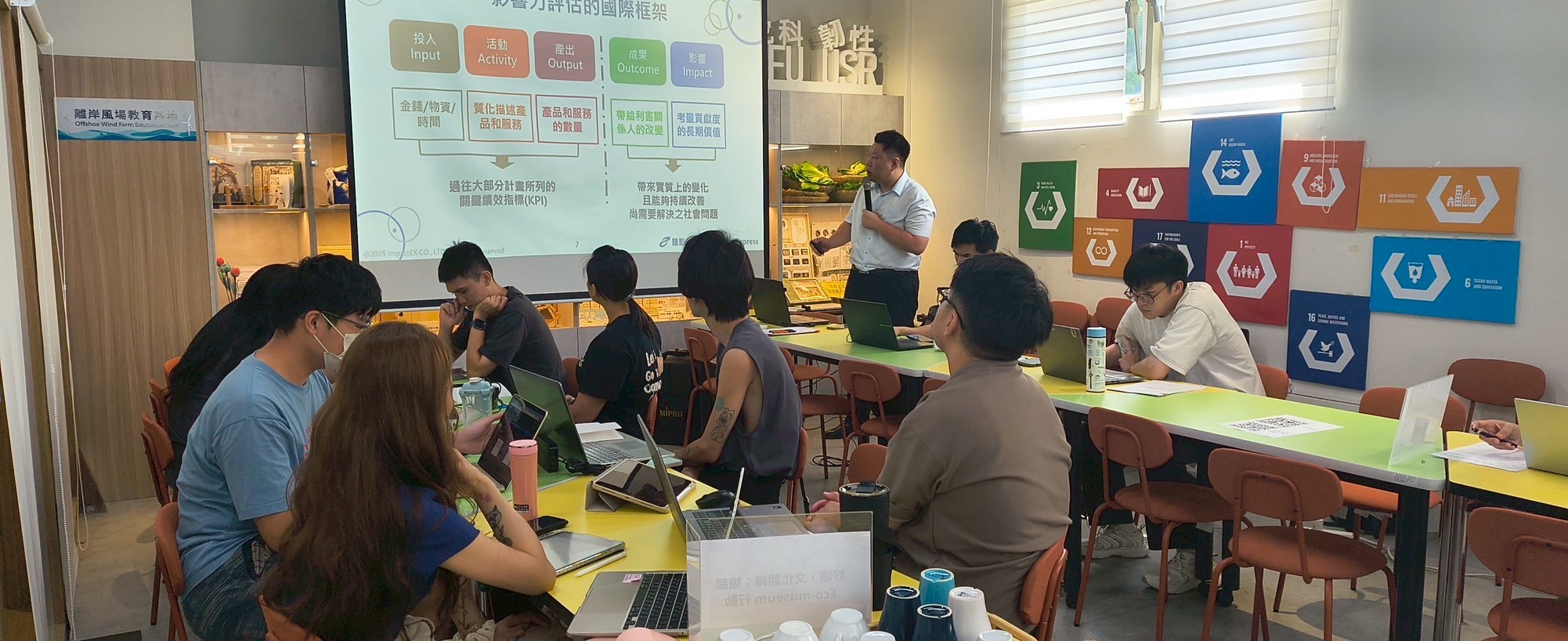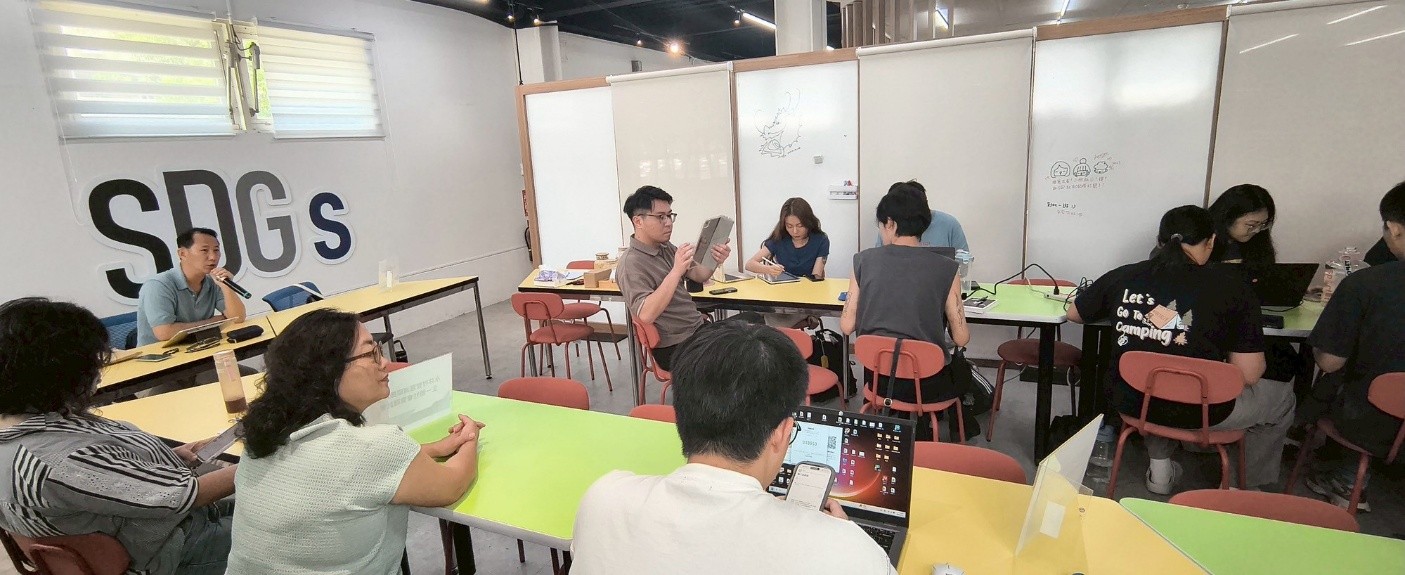Mr. Chen Guanhao, Founder and CEO of Jeying Sustainable Technology, was specially invited to serve as the lecturer. The course was co-hosted by Director Kang Shih-hao of the University Social Practice Center (under the OSSD). The main theme of the course was "theory combined with practice," assisting the university's USR team members in understanding the application of social impact assessment in project execution through hands-on practice.
※Course Highlights:
• Third-Party Practical Consultation:
The lecturer provided case-by-case feedback and suggestions based on the project data brought by the teams, assisting members in clarifying the logical relationships among input, output, and outcomes. The external professional perspective allowed teams to review and adjust their assessment design, enhancing the completeness of their results presentation.
• Joint Discussion and Exchange:
During the group discussion segment, members engaged in Q&A with the lecturer, stimulating diverse viewpoints through exchange. Cross-project practical analysis also allowed teams from different fields to reference and reflect on each other's work, gradually forming a more systematic thinking model.
※SROI and Stakeholder Discussion:
The course specifically emphasized the role of Stakeholders and highlighted their core position in the SROI assessment process.
• Internal Stakeholders: Including teachers, students, and administrative units; their participation and feedback not only affect the project's progress but also constitute important sources for assessment data.
• External Stakeholders: Such as community residents, local organizations, local governments, and partner enterprises; their needs, feedback, and actual benefits directly reflect the project's social value.
• Multi-Level Participation: Through methods like questionnaires, interviews, and workshops, quantitative and qualitative data can be collected, and the consultation process can verify whether different group perspectives are fully incorporated.
This course allowed the teams to deeply understand "how the perspectives of different stakeholders are transformed into evidence of social value," and to learn a step-by-step analysis of stakeholder relationships, and how to effectively and impartially link relevant empirical information into the input, output, and outcome chain.
※Course Gains and Future Outlook:
This course assisted the teams in mastering the basic SROI framework and practical operations for stakeholder relationships, and guided everyone to rethink the role and impact of stakeholders in practice. Overall, participants gained a clearer understanding of the SROI methodology.
In the future, the OSSD will continue to plan relevant empowerment courses and gradually promote different forms of practical workshops based on demand, assisting university teams in more completely responding to stakeholder needs during project promotion, and demonstrating more concrete social value in outcome assessments.
Activity Photos:
 Figure 1: Instructor Chen Guanhao explains practical SROI cases.
Figure 1: Instructor Chen Guanhao explains practical SROI cases.  Figure 2: Director Kang Shih-hao of the University Social Practice Center provides practical consultation on the status of school teams.
Figure 2: Director Kang Shih-hao of the University Social Practice Center provides practical consultation on the status of school teams.


